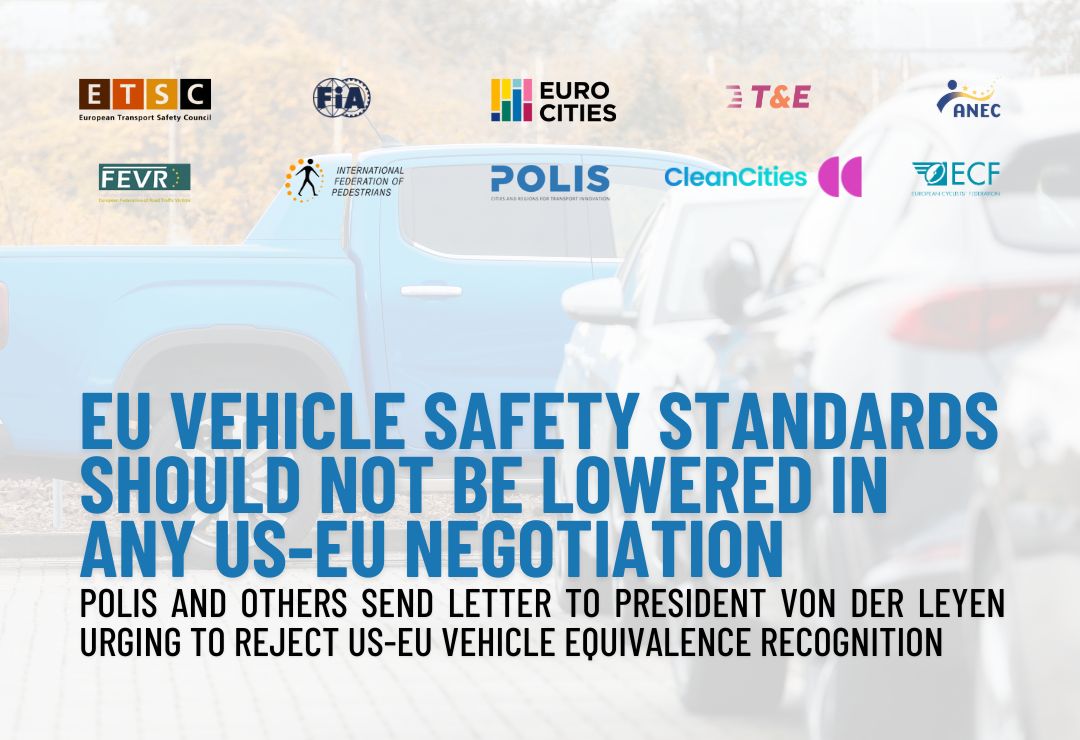Vehicle safety standards must stay out of the EU-US trade disputes
POLIS has co-signed a letter from the European Transport Safety Council (ETSC) written to Commission President von der Leyen to urge the rejection of US-EU vehicle equivalence in any upcoming trade negotiations with the US.
Preoccupations continue to grow about the upcoming EU-US negotiations on a deal regarding car imports. The ETSC and nine other European transport organisations, including POLIS, have already expressed their concern in a letter published in the Financial Times. But as Donald Trump announces a 25% tariff on all imported vehicles, they are worried that the EU will sacrifice its vehicle safety standards to avoid a trade war.
POLIS, along with the European Transport Safety Council, the Fédération Internationale de l’Automobile, Region I, ANEC — The European Consumer Voice in Standardisation, Eurocities, FEVR — European Federation of Road Traffic Victims, Clean Cities Campaign, Transport & Environment, the International Federation of Pedestrians, and the European Cyclists’ Federation, sent a letter to the European Commission, warning against the lowering of product safety, sustainability and environmental requirements.
The letter addressed to Ursula von der Leyen urges the Commission President to not recognise US vehicles as ‘equivalent’ to the European ones, as mutual recognition would compromise automotive safety. EU vehicles have to abide by significantly higher safety standards than their US counterparts, and allowing US-market vehicles to be sold in the EU without aiding the EU’s strict safety standards means exposing European road users to greater risk.
Will road safety be the collateral damage?
The EU and the US have significantly different safety standards. As emphasized by the latest briefing by ETSC, EU and US standards are not equivalent, with EU models on average 33% safer in the case of the risk of serious injury in common front-side crashes.
At the moment, American-market cars are being imported into the European market through the loophole of the Individual Vehicle Approval (IVA) system, which allows American SUVs and pick-ups in the EU despite not being compliant with EU safety standards. ETSC, POLIS, and other organisations are pressuring to close this loophole and stop the growing trend of large, heavy US vehicles on European roads.
In addition, ETSC points out that not only the mutual recognition of US vehicles would undermine road safety, but EU manufacturers too. Allowing vehicles below EU standards would favour non-EU manufacturers and damage the European automotive sector.
POLIS, ETSC, and other European organisations are stressing the potential negative consequences of accepting US standards, emphasising again that the protection of European citizens from road deaths and serious injuries is non-negotiable.
